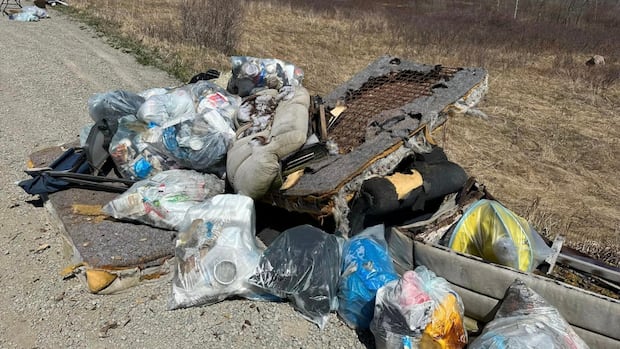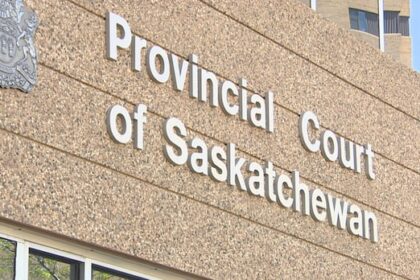Nova ScotiaCouncil has voted to create a standalone litter bylaw that could see fines handed out to people and businesses responsible for littering.Municipality has ‘major litter problem,’ according to one councillorErin Pottie · CBC News · Posted: Aug 21, 2025 5:00 AM EDT | Last Updated: 3 hours agoWhile fines can be handed out for illegal dumping under CBRM’s solid waste regulations, there is no standalone bylaw on littering. (Submitted by Dylan Yates)Cape Breton Regional Municipality is looking to leave litter where it belongs: in a trash can. After years of complaints from volunteer cleanup groups, municipal council voted Tuesday to create a standalone litter bylaw that could see fines handed out to people and businesses responsible for littering.”I recognize everybody’s not able to check their property daily [or] hourly,” said Coun. Kim Sheppard-Campbell, who brought forward the bylaw proposal.”But there are businesses that are food businesses … and they are aware that their garbage is all over parking lots.”Since 2011, more than 50,000 kilograms of litter have been collected across the CBRM, according to Atlantic Coastal Action Program (ACAP) Cape Breton, a non-profit environmental organization.Eldon MacDonald, who represents areas of downtown Sydney, said he’s in agreement that CBRM has “a major litter problem,” but expressed concerns over penalizing private businesses for the actions of others. Illegal dumping finesThere is no dedicated bylaw addressing litter in CBRM, although fines can be handed out under the municipality’s solid waste regulations in cases of illegal dumping of waste that could be considered a public nuisance or hazard. Those fines range from $697.50 to $50,000.Kathleen Aikens, ACAP Cape Breton’s executive director, said a large part of the CBRM’s litter problem relates to single-use packaging such as plastic wrap and disposable coffee cups.According to ACAP Cape Breton, more than 50,000 kilograms of litter have been collected across the CBRM since 2011. (Joan Weeks/CBC)ACAP has collected data over the past 10 years from its summer program known as Trashformers that has shown societal and regulatory changes can make a difference.”We even see the effects of things like the plastic bag ban,” Aikens said. “Most of that litter disappeared from our data after the ban was implemented, and then again when we had the COVID-19 pandemic and mask mandates and gloves, we started to see a lot of that litter showing up in our data as well.”Aitkens said she’s pleased to hear CBRM wants to address the issue with a new bylaw. “The trouble with litter is that it’s not a single problem, so there is no silver bullet. We have an issue with litterers. We have an issue with overfull waste bins. We have an issue that we are a regional municipality — that’s a big area to cover,” she said. “We need a massive cultural shift. A lot of that shift is preventing litter, disposing of it in the correct way. But also a bigger part of the shift is things like reducing our consumption.”More trash bins comingSome councillors said CBRM has its own role to play in keeping communities clean by providing more garbage and recycling bins. Officials said trash receptacles have been ordered and will be in place by next spring. Mayor Cecil Clarke told reporters the municipality is considering stiffer penalties for repeat litterbugs.”Maybe we have to work with the province to make this real to the point of being serious, that it has teeth,” he said.In the Halifax Regional Municipality, penalties range from $500 to $10,000 for illegal dumping, and $200 to $10,000 for litter violations.ABOUT THE AUTHORErin Pottie is a CBC reporter based in Sydney. She has been covering local news in Cape Breton for more than 20 years. Story ideas welcome at erin.pottie@cbc.ca.
CBRM tackles its trash troubles, considers fines for litterbugs











